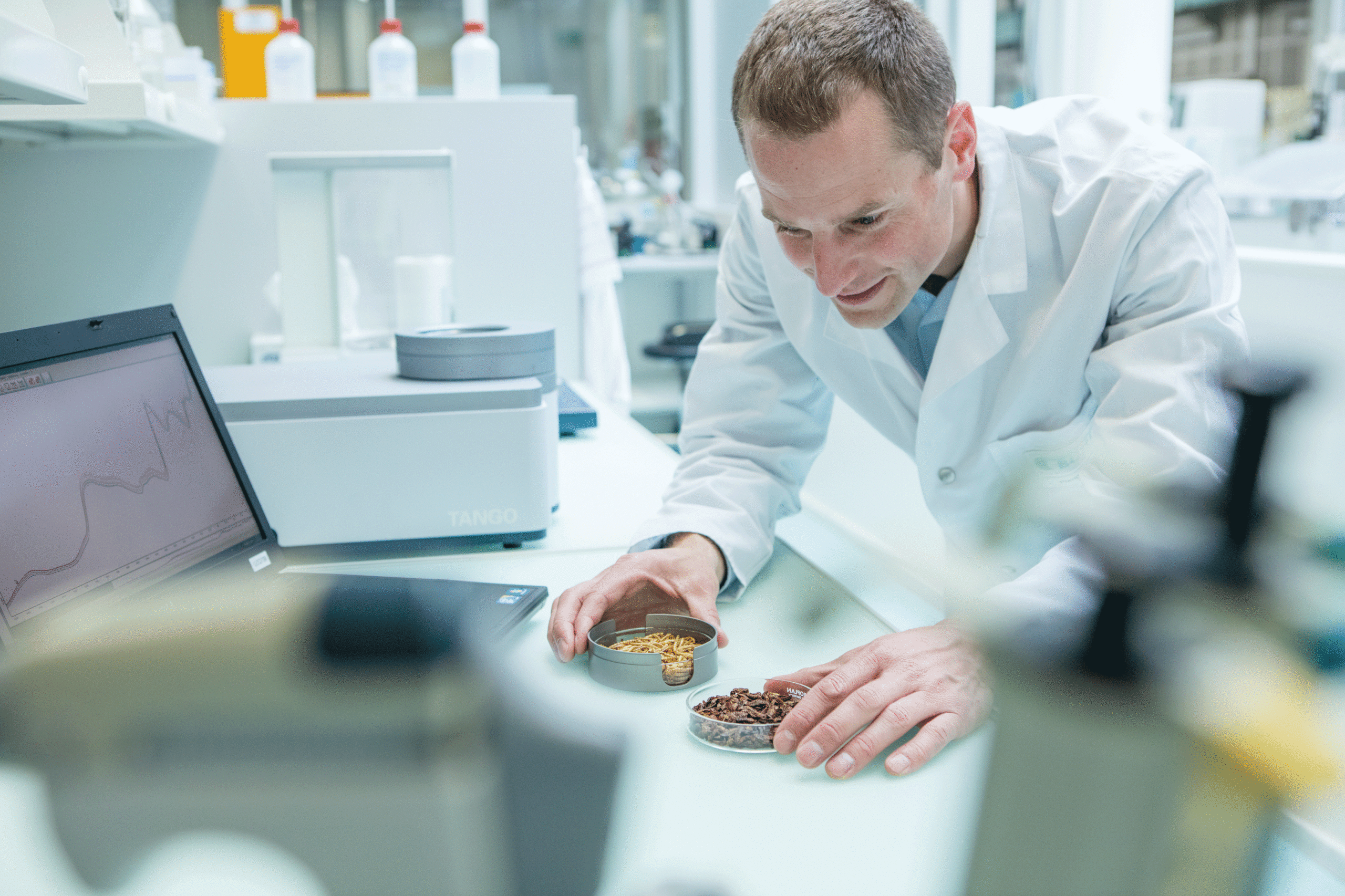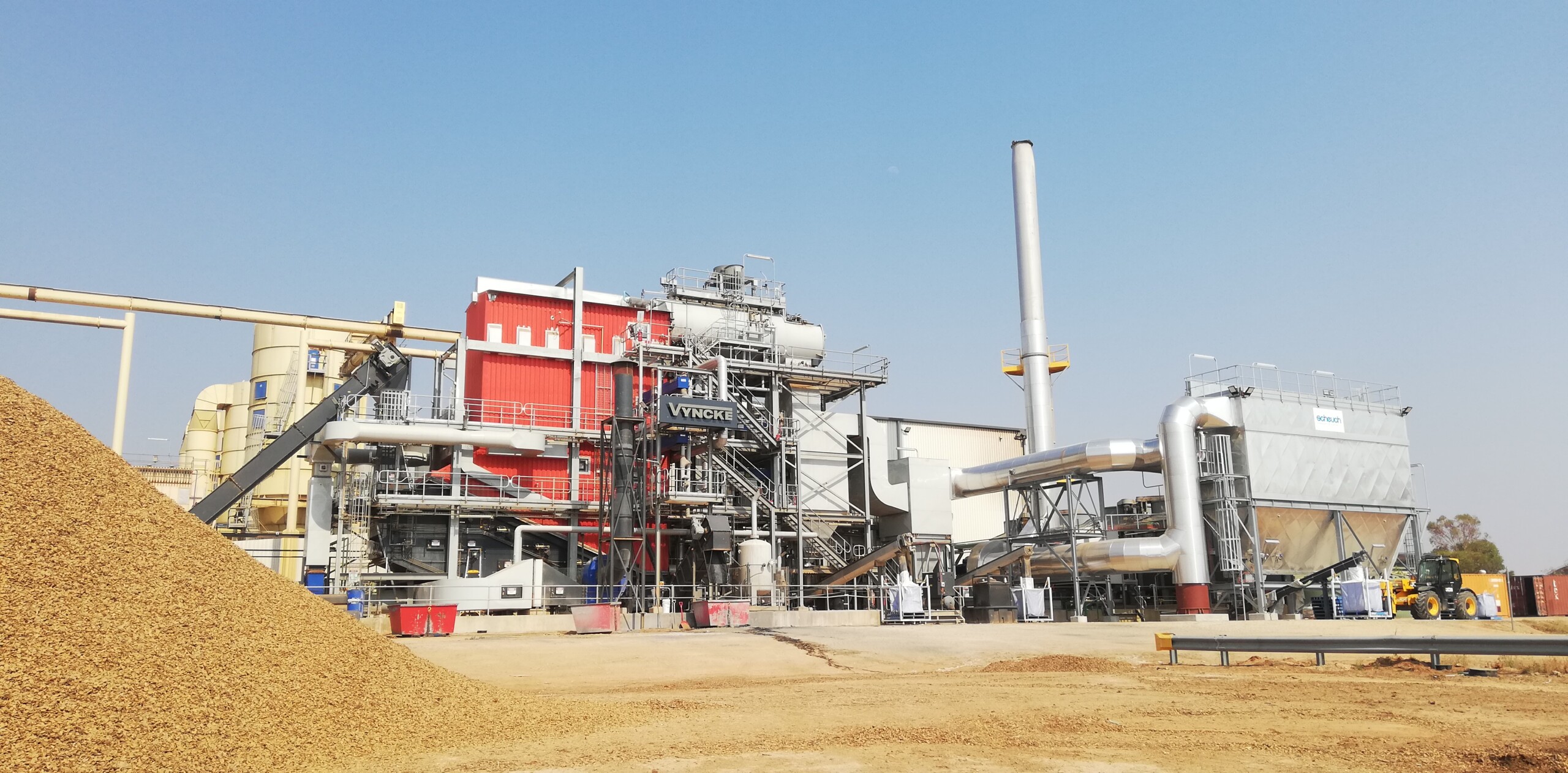Beer, bugs and biomass: global technology groups support innovation to make Aussie food chains more sustainable
With the race on in Australia to explore more sustainable food production methods, global technology groups Bühler and Vyncke are backing local agribusinesses to fast-track innovation in fields such as complementary proteins, biomass, insects and beers.
 6 min read
6 min read
Innovation in Australia’s agrifood tech sector has caught the eye of Swiss plant and equipment manufacturer Bühler and its Belgian clean energy technology partner Vyncke, prompting the multinationals to shine their focus on solutions for Australian food and feed businesses.
“We see huge potential in Australia,” says Bühler’s regional innovation lead, Dr Aparna Venkatesh.
“In fact, among the food producer customers who came to use our Singapore innovation centre in the last year, by far the most have come from Australia and South Korea. That alone is a big indication of the interest among Australian companies to innovate, so it’s certainly a priority market for us.”
With a presence in around 140 countries, Bühler is a big player in the global human food and animal feed value chains, its equipment used by thousands of businesses to process foods eaten daily by around two billion people worldwide.
“We build plants and manufacture the equipment used by food and feed producers through the entire process chain – from raw materials, to the milling or conching, to moulding or extrusion processes, right through to the finished end product – which is quite unique,” Aparna said.
“Our technology solutions cover the full food spectrum, from customers who are in coffee or chocolate, to animal feed pellets, pasta, grains or complementary proteins.”
Family-owned since its inception in 1860, Bühler – which also manufactures processing solutions for advanced materials – is on a mission to use its tech to help make food production more sustainable and tackle climate change. To do so, the company reinvests most of its profits into innovation, last year pumping 4.7 per cent of its CHF 3 billion (around AU $5 billion) turnover into R&D.
“We really do strive to constantly create new products for customers, improving solutions towards more efficient food and feed production globally,” Aparna said.
Next generation plant-based foods
A big focus for Bühler in the region is on complementary proteins for plant-based food products, a fast-growing market that’s becoming increasingly important as demand intensifies for food from the growing global population.
Beyond manufacturing tailored plant and processing equipment, Bühler has opened application centres in key global locations to accelerate sustainable protein production, offering pay-per-use access to businesses looking to break new product ground by trialling ideas and testing new shapes, recipes, textures, flavours and technologies to optimise production.
Its Asia Pacific centre, which opened in Singapore in 2021 in partnership with Swiss flavour giant Givaudan, has welcomed several Australian businesses – including B2B plant-based protein supplier Eighth Day Foods, and complementary proteins and dairy producer All G Foods.
“The centre is useful for businesses to do fast, inexpensive prototyping of new plant-based food products,” Aparna said. “It gives them access to our equipment and latest technologies – which is typically unaffordable for a lot of startups – and our know-how around flavour and processing. The samples produced there can be shipped back with the businesses so they can continue to optimise their product development journey and scale it up at their own manufacturing centres at home.”
Bühler is also in early-stage planning with Australia’s national science agency CSIRO to create an Australian-first state-of-the-art technology centre to explore the next generation of complementary proteins for food. The centre, which Aparna expects will be operational by the end of 2024, will bring together Bühler’s processing experience with CSIRO’s expertise in genetics, breeding, food safety, as well as fully integrated sensory, flavour and consumer research capabilities.
“It will have the most advanced infrastructure in the region,” she said. “When it’s up and running, our customers in Australia will be able to tap into this facility, which will offer contract manufacturing and research services.”
Bühler recently built a similar centre at its headquarters in Uzwil, Switzerland, to be operational from September this year, with a pay-per-use model for customers to leverage the full suite of its upstream and downstream processes for plant-based proteins, from pulse processing to extrusion.
Boosting bug [insect] solutions
A very different form of sustainable protein supply, Bühler is also backing the emerging field of insect proteins for food and feed, a market it expects to reach half a million metric tons by 2030.
“We’re working with a growing number of customers to produce insects – like black soldier flies – at an industrial scale,” Aparna said.

Image supplied by Bühler
“These insects are not only closing the loop on the disposal of organic waste – which is a huge global problem – they also recycle nutrients from the waste, bringing it back into the local food value chain. Our solutions also help transform those nutrients into protein and lipids for animal feed applications as well as fertiliser for agricultural use.”
Biomass energy and lower carbon food plant solutions
In line with its commitment to help food and feed producers reduce their energy, waste and water usage, Bühler launched a ‘CO2e Quantification Service’ last year, to help customers measure their processing plant’s environmental footprint and pinpoint solutions for improvement.
“It’s really helping businesses understand what the biggest levers are they can pull to lower their energy costs, waste and emissions,” Aparna said.
Among the solutions attracting the greatest interest in Australia are biomass to energy systems offered through Bühler’s strategic partner Vyncke Clean Energy Technology.

Image provided by Vyncke
Vyncke executive Dieter De Hertogh says that as food and feed businesses look for pathways to decarbonise, there’s a growing realisation that biomass can be a good solution.
“Many operators have a biomass side-stream or waste-stream which we valorise by turning it into renewable energy that can be used in their own operations or to supply electricity to the grid,” Dieter said.
“When people think of biomass, a lot of people will immediately think about wood pellets, but there are many different agricultural and food processing waste-streams – for instance, the spent grounds from instant coffee manufacturing or oat hulls – which until recently have been undervalued.”
Dieter points to the example of a Victorian-based nut and health food company that has installed an almond shell-fired energy plant to provide its production sites with steam and electricity, while surplus green power is fed to the local grid. In 2022, it reported supplying 17.5 GWh of renewable electricity from its harvested biomass, equivalent to powering 3,643 average Victorian homes.
“They take the hulls and shells from the almonds, which are inedible to humans, and instead of sending them to landfill they are now diverted to energy production, which is a very beneficial use for this otherwise uninteresting side-stream of their core business,” Dieter said.
Around the world, he said the systems installed by Vyncke’s customers are estimated to have the combined capability to enable a reduction in CO₂ emissions by up to 5.8 million tonnes annually.
Better brewing
Bühler’s sustainable production lens even extends to budding craft beer producers, offering what it says is “the most efficient malting solution in the market”.
Introduced in 2021, its modular malting plant solution, RimoMalt, enables breweries producing up to 1.1 million hectolitres annually to produce their own malt and quickly increase production with rising demand.
Aparna explains its efficiency is due to the way it combines various internal heating systems, and its small footprint and flexibility which enables local production and grain use, decreasing logistics emissions.
Huge potential in Australia
Although the Australian market has unique factors, such as vast geographical distances, which make certain sustainable production solutions challenging to adopt, Aparna believes the potential is huge.
“Australia is quite advanced in terms of sustainable technology innovation, there is a strong push from the government and a lot of great infrastructure in place to get this going, and there’s a very cohesive ecosystem in which everyone is proactive,” she said.
“But there is a lot more that can be done, and we’d like to be part of it.”
Hear more about the opportunity for innovation in agrifood at evokeAG 2024 in Perth, Western Australia on the 20-21 February. Early bird tickets are now on sale for evokeAG. 2024 and following a sell-out event in 2023 we are encouraging delegates to secure their tickets, flights and accommodation early.
We look forward to seeing you in Perth for evokeAG. 2024, in the meantime, catch up on the other conversations about sustainability, climate resilience and the role of agritech in meeting those challenges from evokeAG. 2023 here.
